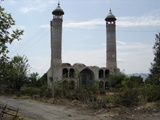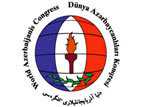|
Delivered at ANC Banquet

Publisher, The California Courier
At its annual banquet on November 8, the Armenian National Committee (Western U.S.), honored California Attorney General Jerry Brown, former governor and current gubernatorial candidate, with the Freedom Award; California State Senator Mark Wyland, and California State Assembly Assistant Majority Leader and candidate for L.A. City Council Paul Krekorian as Legislators of the Year; and Harut Sassounian, Publisher of the California Courier, with the Legacy Award. California State Assemblyman Anthony Protantino was master of ceremonies. More than 700 guests attended the event held at the Pasadena Convention Center.
The honorees received special commendations from members of Congress, State Senators and the L.A. City Council. Cong. Brad Sherman presented Harut Sassounian with a flag flown over the U.S. Capitol. Among the many congratulatory letters received by ANC was a message from Mr. Kirk Kerkorian: “I have known Harut for many years, and I am proud of the good work he has done for Armenia and on behalf of the Armenian community worldwide. I congratulate the ANC for honoring him.”
In introducing this columnist, ANC Board Member Pattyl Aposhian-Kasparian stated:
“What is it about Harut Sassounian that draws such a large number of admirers from all walks of life to follow the stroke of his pen? The word activist or visionary hardly explains it. Tireless leader and devoted teacher to generations of Armenian-Americans start to scratch the surface. The attraction to Harut lies in his passion with a direct magnetic draw to his courage, exuberance and resolve.
“Harut is a highly respected name in many circles. He has helped define the political fabric of our time, championed free speech and fought on local, national and international grounds for justice. His persistence has received national media attention and has gently pushed open the gates of reform.
“His first major activism proved successful at the U.N. in the 1970’s. From that day forward, Harut has served as a timeless moral voice — an author, publisher, speaker, community activist and leader.
“Through his columns, Harut is one of the first to diagnose a problem and write a prescription. Countless examples come to mind: The campaign against the L.A. Times and its Managing Editor Douglas Frantz; lobbying against Time magazine for inserting a Turkish denialist DVD; blocking the nomination of Amb. Hoagland after the dismissal of Amb. Evans; initiating a letter writing campaign to counter the denial of the Armenian Genocide by the British Ambassador to Armenia; and opposing plans by PBS stations to air a panel discussion with denialists of the Armenian Genocide. And the list goes on to cover more than 30 years of activism.”
In accepting the award, I made the following remarks:
“Our collective efforts on behalf of the Armenian Cause stem from the tragic fact that a terrible injustice was committed against our people more than 90 years ago.
“The Genocide and the loss of our homeland went unnoticed by the international community for many decades, until our people, led by our political organizations, rose from the ashes of decimation and defeat, and struggled to regain their rights. As a result, the Armenian Genocide is universally recognized, and is no longer a forgotten episode.
“Nevertheless, today’s Turkish Government, the successor of the regime that committed the Genocide, continues to deny this massive crime, benefiting to this day from our looted assets and properties.
“This injustice cannot and must not go on! We need to do everything in our power to restore justice! We demand the return of the stolen properties and occupied territories to their proper owners — the Armenian nation!
“To accomplish this monumental task, we need the participation of every Armenian, as well as the support of all those who side with truth and justice.
“As we have seen in recent months, Armenia’s leaders are under tremendous international pressure to make major concessions to both Turkey and Azerbaijan. Armenia is too small and too weak to be able to withstand such powerful pressures all by itself! Diaspora-Armenians on the other hand, are under no such constraints.
“It is incumbent on all of us to lend a helping hand to reduce the pressures on Armenia. Armenians in all countries, particularly those in the United States, Russia and Europe, should lobby their respective governments to counter their unjust and one-sided support for Turkey and Azerbaijan.
“We should make this effort, regardless of whether our help is requested or even appreciated by the Armenian government.
“Of course, our lobbying efforts would be much more effective, if carried out in a cooperative and coordinated manner both within the Diaspora and between the Diaspora and Armenia.
“We should also not hold back any political, economic or humanitarian assistance from our people in the homeland, because of disagreements with Armenia’s leadership.
“Regimes and leaders come and go, but the nation is eternal!
“Let us remain vigilant, engaged and united in our purpose. Let us carry on the torch of our Cause, until justice is restored to our long-suffering nation.” |
 200-year old cemetery is located 6-7 kilometers outside the center of the Agdam region.
200-year old cemetery is located 6-7 kilometers outside the center of the Agdam region.







